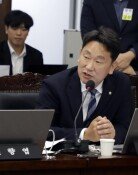Housing lease laws must be gradually reversed
Housing lease laws must be gradually reversed
Posted March. 30, 2022 07:56,
Updated March. 30, 2022 07:56
The housing market task force of the presidential transition committee pointed out the so-called “three major housing lease laws” as the representative example of the Moon Jae-in administration’s failures of real estate market-related policies and announced that it would either repeal or downscale them. The gist of the incoming administration’s real estate policies is to persuade the Democratic Party to amend the right to seek renewal of a lease contract, the upper limit on the amount of jeonse (lump sum) deposit and monthly deposit increase, and the reporting system of jeonse deposit and monthly deposit lease contracts and to promote private housing leases in parallel. In a response to the task force’s plan, the chairman of the Democratic Party’s joint emergency committee said in a radio interview that “(repealing the policies) is unacceptable.” As the presidential transition committee and the ruling Democratic Party are opposite to each other over repealing the three major housing lease laws, the amendment process is likely to go through significant struggle.
임대차3법은 세입자를 보호한다는 명분으로 만들었지만 현장에 적용하는 과정에서 적지 않은 부작용이 있었다. 전셋값이 연쇄적으로 오르는 도미노 전세난이 이어진 데다 이중가격, 전세의 월세화로 세입자의 고통이 가중됐다. 실제 서울 아파트 전세 중위가격은 최근 1년 8개월 동안 4억7000만 원에서 6억1000만 원으로 뛰었다. 해당 법 도입 이후 서울 아파트 임대 물건이 16% 감소했다는 조세재정연구원의 분석도 있다. 법 시행 전 반시장적 제도라는 지적이 잇따랐는데도 무리수를 둔 충격이 지금 나타나고 있는 것이다.
The three housing lease laws were introduced under the justification of affording protection to tenants, but there were many adverse effects in the process―continuing rent growth, double prices, and transformation of jeonse into monthly leases, to name a few. For example, the median home price in the Seoul Metropolitan area surged from 470 million won to 610 million won over the past one year and eight months. An analysis by the Korea Institute of Public Finance also showed that the number of housing leases has deceased by 16 percent since the enactment of the pertinent laws. Although experts had criticized that such laws were against the market principle, the government nonetheless pushed ahead with the policy, which ultimately sent shockwaves to the market.
임차인 보호를 위한 법이 되레 전세난을 키운 만큼 문제점을 대폭 수술하는 것은 불가피하다. 다만 법을 서둘러 ‘유턴’시켜야 한다는 강박증에 사로잡혀 폐지에 집착하거나 개편작업을 지나치게 서두를 경우 또 다른 문제를 초래할 소지가 있다. 계약갱신청구권이나 전월세 상한제를 급하게 없앤다면 계약 만료일이 임박한 세입자들은 가격 급등과 매물 감소로 피해를 볼 수 있다. 어제 인수위 브리핑에서 부동산TF 관계자가 단계적 방안을 언급한 것도 이런 단기 충격을 우려했기 때문일 것이다.
It is inevitable to drastically revise the shortcomings of the current real estate policies, as the laws intended to protect tenants instead exacerbated the rent growth. Yet the incoming administration must take caution in pushing ahead with repealing the current policies or expediting the amendment process by obsessing over reversal of the law. Tenants whose lease contracts are nearing expiry date may incur losses if the right to seek renewal of lease contracts or the upper limit on jeonse or monthly deposit increases are rapidly abolished, as a result of housing price spike and reduced number of houses on the rent in the market. The phased reversal that the transition committee mentioned yesterday at the briefing seems to be intended for mitigation of such risks as much as possible.
임대차3법의 부작용이 크지만 전세 갱신비율이 높아지는 등 긍정적 효과가 전혀 없었던 것은 아니다. 현재의 전세난 중 임대차3법이 원인이 된 부분을 찾아 수정하되 제도의 장점은 장점대로 살려 시장에 안착시키는 선별적, 점진적 개편이 필요하다. 그러고도 문제가 지속된다면 보다 효율적인 임차인 보호책을 대안으로 마련한 뒤 현행법을 폐지해도 늦지 않을 것이다.
Although the adverse effects of the three housing lease laws are severe, these laws had some positive effects by driving up the percentage of renewed jeonse leases. While identifying the jeonse problem, the culprit of which lies in the three housing lease laws, and making necessary amendments thereto, the incoming administration must take selective and gradual reform by sparing the positive aspect of the pertinent policies and establishing them firmly in the market. If the problem persists even after doing so, it would still not be late to first prepare an effective alternative whereby tenants can be protected and then abolish the current laws.







